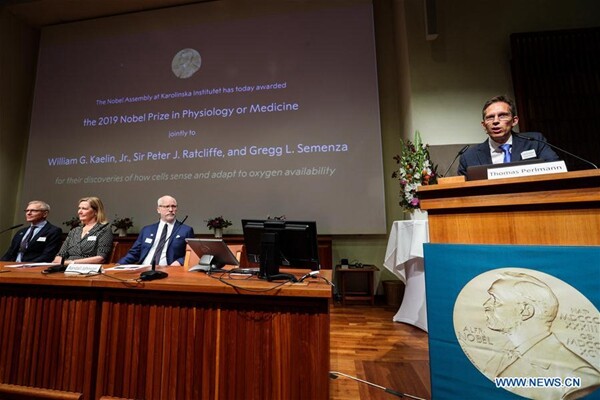The Caroline Medical School of Sweden announced on the 7th that it will award the 2019 Nobel Prize in Physiology or Medicine to American scientists William Carey, Greg Semenza and British scientist Peter Ratcliffe. Recognize their contributions in "Discover how cells perceive and adapt to oxygen supply". Three scientists will share 9 million kronor.
Greg Semenza, winner of the 2019 Nobel Prize in Physiology or Medicine: The phone rings before 4 am and I am still asleep. I was shocked when I picked up the phone, and then I heard that I was awarded this award. I am stunned. No one would have thought that they would win the Nobel Prize. This is a great honor. I am very happy to be awarded this award. We will continue to do research and continue to transform the research in the laboratory into a new disease treatment method.

The judges believe that oxygen is vital to animal life. Ratcliffe and Semenza discovered a key hypoxia-inducing factor that not only changes with changes in oxygen concentration, but also regulates the expression of erythropoietin, stimulating the bone marrow to produce more red blood cells to transport oxygen.
Kailin's research explains the specific mechanism by which the number of hypoxia-inducible factors in the body drops dramatically as the oxygen concentration rises.
Greg Semenza, winner of the 2019 Nobel Prize in Physiology or Medicine: How the body guarantees adequate oxygen for the survival of each cell is the most basic requirement. You can hold your breath, and then you will find that lack of oxygen in a short period of time will make you feel at a loss.
At the same time, it is also a basic system to ensure that the body can do this, so each cell can respond to hypoxic conditions, which can produce hypoxia-inducible factors that increase the oxygen delivered to the cells, or allow The cells work under hypoxic conditions.
It is understood that this research not only has basic scientific research value, but also hopes to bring new treatments for diseases. For example, regulation of hypoxia-inducible factor pathway will help to treat anemia; while degradation of erythropoietin-related protein may inhibit angiogenesis. This will help fight malignant tumors that require new blood vessels. Treatment for diseases such as stroke and myocardial infarction may also benefit.


